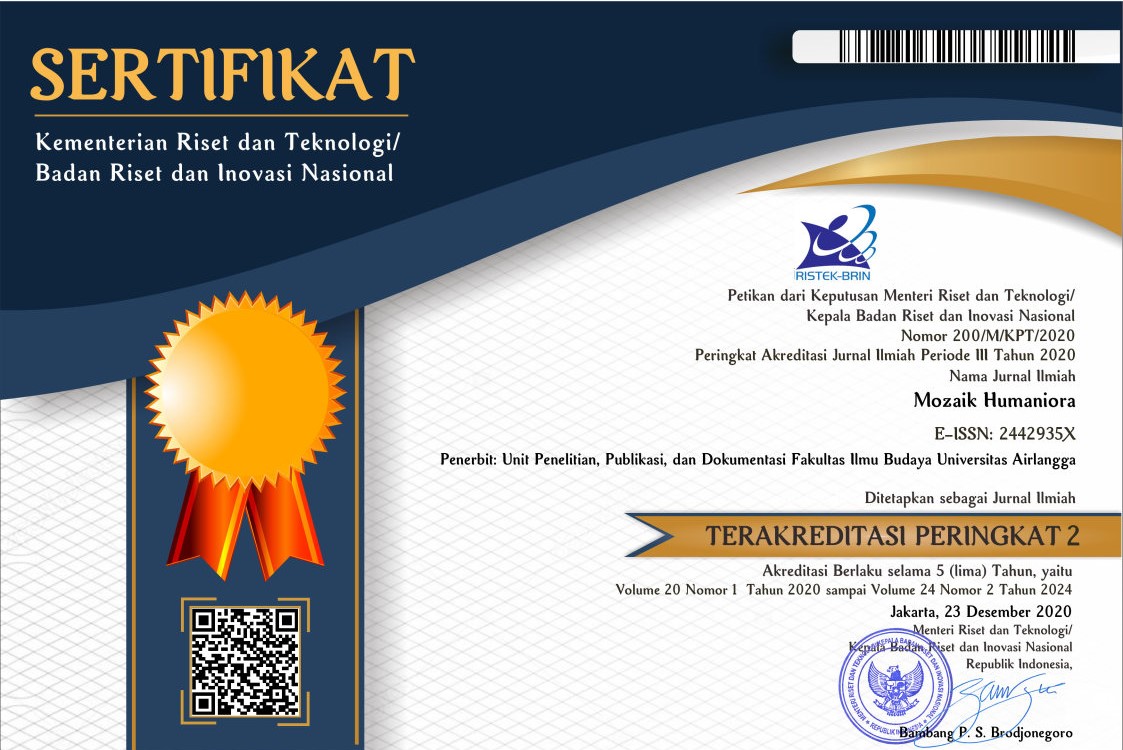Young People, Religion, and the Everyday Practice of Popular Culture: The Case of Urban Muslim Young People
Downloads
Copyright (c) 1970 Hariyadi Hariyadi

This work is licensed under a Creative Commons Attribution-ShareAlike 4.0 International License.

Mozaik Humaniora is licensed under a Creative Commons Attribution-ShareAlike 4.0 International License. Both authors and Mozaik Humaniora agree with the following attribution of journal:
1. Copyright of this journal is possession of Author, by the knowledge of the Editorial Board and Journal Manager, while the moral right of the publication belongs to the author.
2. The journal allows the author(s) to retain publishing rights without restrictions
3. The legal formal aspect of journal publication accessibility refers to Creative Commons Attribution Share-Alike (CC BY-SA).
4. The Creative Commons Attribution Share-Alike (CC BY-SA) license allows re-distribution and re-use of a licensed work on the conditions that the creator is appropriately credited and that any derivative work is made available under "the same, similar or a compatible license”. Other than the conditions mentioned above, the editorial board is not responsible for copyright violation.


















